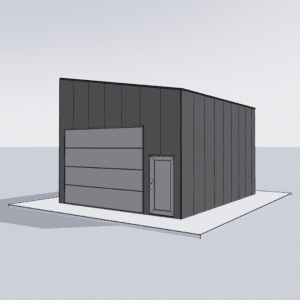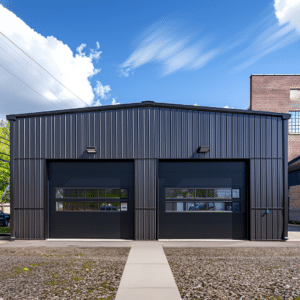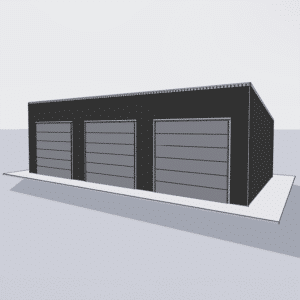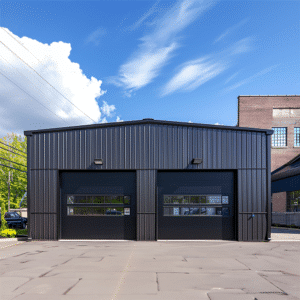Imagine the satisfaction of stepping into a new home—a space that echoes with possibility and reflects your personal taste. However, that joy can quickly be eclipsed by unexpected surprises if you haven’t conducted a thorough home inspection. For anyone in the market for a new place, understanding how to perform a comprehensive home inspection for buyers is crucial. This process isn’t just a box to check off; it’s your detective mission, ensuring that the home is both safe and sound. Let’s delve deeply into the essential steps of conducting a reliable home inspection.
The Importance of Pre-Purchase Home Inspection
Buying a home is often the biggest investment people make in their lifetime. It’s no wonder that nearly every buyer asks, “Is this house really worth the asking price?” Conducting a home inspection helps answer this critical question. It reveals potential problems that could cost a fortune or impact the home’s habitability.
Imagine moving into your dream home, only to discover that the roof leaks or the foundation is cracked. Addressing these issues post-purchase can be both expensive and time-consuming. Additionally, a home inspection isn’t just about uncovering existing issues; it is also about recognizing future problems that could arise due to wear and tear. With a proper inspection, the buyer gains negotiating leverage, potentially sweetening the deal or avoiding unnecessary headaches.
Key Areas to Inspect
During the home inspection process, attention to detail is paramount. The expertise lies in knowing where to look and what to look for. Let’s break it down:
1. Structural Soundness
A house needs a strong backbone—its structural components must be solid. Examine the foundation for any cracks, the walls for signs of water damage, and the roof for missing or damaged shingles. Have you ever heard the saying, “A house is only as sturdy as its foundation?” It’s incredibly apt. If you notice any anomalies, contacting a professional for a more in-depth assessment is wise.

2. Electrical Systems and Plumbing
When examining a house’s safety, never overlook the electrical systems and plumbing. Ensure all wiring is modern and up to code. Faulty wiring can be a dangerous fire hazard. For plumbing, there’s nothing worse than turning on the tap and hearing groaning pipes. Make sure faucets, toilets, and water heaters function properly. These systems are integral to daily life and costly to replace.
3. Heating, Ventilation, and Air Conditioning (HVAC)
Comfort in a home is non-negotiable, and the HVAC system plays a significant role in this. Test the furnace and air conditioning units for efficiency and life expectancy. Do they perform quietly, or do they sound like a plane taking off? Inefficient HVAC systems not only reduce comfort but can also lead to exorbitant energy bills.
Inspecting the *Small* Things
Don’t let the grandeur of a home distract from the minute details that could spell trouble. Doors should open effortlessly without creaks, and windows should seal properly. Check for signs of pest activity in less-used areas like basements and attics. A squeaky door might charm in a movie but in real life, it’s often a harbinger of structural issues.
Navigating the Home Inspection Report
After the inspection is complete, you’ll receive a home inspection report. It details the findings and provides recommendations for repairs and maintenance. Now, this is where your negotiation skills shine. You can request sellers to address certain issues before closing the deal or adjust the price accordingly. Navigating this report can be daunting, but remember, it’s there to guide your decision-making.
Leverage and Negotiation
Let’s say the inspection reveals minor foundational cracks. Rather than see this as a dealbreaker, view it as leverage. Discuss these findings with the seller. If they remain firm, you’re justifiably prepared to walk away. However, they might be willing to negotiate, allowing you to secure a reduced price or have them cover repair costs.
The Role of Professional Inspectors
While a DIY inspection is feasible, hiring a professional often uncovers issues an untrained eye might miss. Professionals possess the tools and knowledge necessary to evaluate a home’s condition comprehensively.
Hiring professionals from a reputable residential construction service like Your Building Team ensures that the inspection is thorough and actionable. Their seasoned inspectors know the intricacies of diverse home styles and consider newer construction methods like metal building systems Ontario, ensuring that everything is up to par with today’s standards.
After the Inspection: What Comes Next?
After you’ve digested the inspection report, decide on the path forward. If everything meets your expectations, congratulations! It’s time to finalize your transaction. However, if the inspection uncovers serious issues, reflect on whether it’s a fixer-upper you’re willing to handle or whether you’d prefer to consider other options.
Wise home buyers take advantage of resources available for both present and future guidance. Online platforms, such as Zillow, offer invaluable insights into property values and neighborhood comparisons. Furthermore, should potential construction-related delays crop up, Dealing with construction delays provides a pragmatic approach to overcoming such challenges effectively.
Conclusion
The path to homeownership is paved with excitement and potential pitfalls. Conducting a thorough home inspection arms you with the necessary insights to make informed decisions, protecting your investment long-term. From checking the foundation to inspecting the HVAC system, each step of the inspection is designed to safeguard your peace of mind.
Ultimately, a comprehensive home inspection clarifies an otherwise complex and overwhelming decision-making process. So, gear up, roll up your sleeves, and approach this with the diligence it deserves. After all, a sound home promises security today and an invaluable asset tomorrow.










